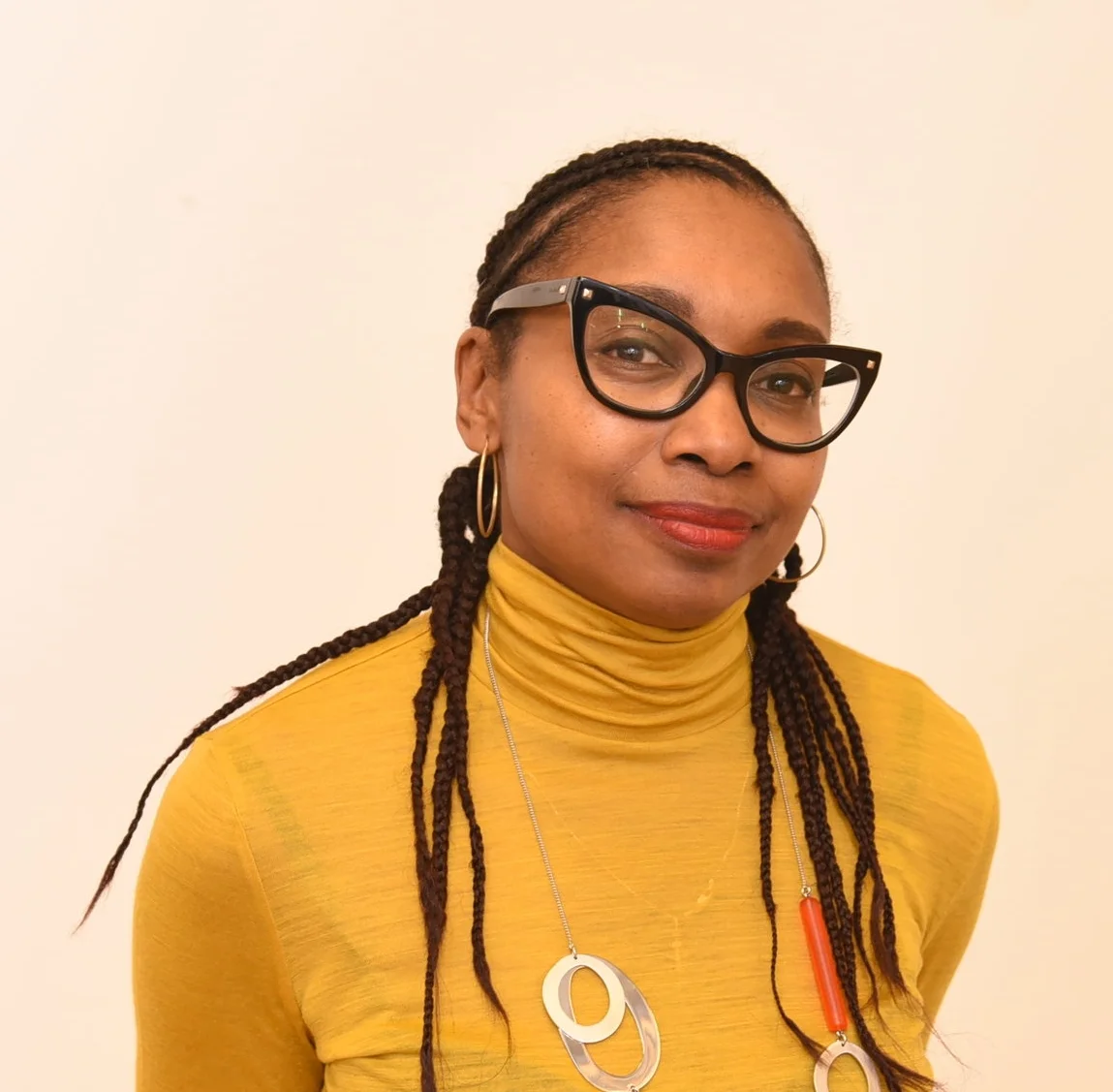Dr. Naila Keleta-Mae studies, teaches and creates art related to Black freedom
April 28, 2023
Mae Belvett does not consider herself an artist.
Neither, most likely, would her late mother Beryl West.
They were, however, in the eyes of Dr. Naila Keleta-Mae who is Belvett’s daughter.
“I grew up around people who made food look and taste beautiful, they decorated their homes with whatever means they had and with care and thoughtfulness and they loved to dress and pay attention to detail,” the University of Waterloo Associate Professor said. “I still have blankets that my grandmother made over 40 years ago. That’s art because there was craftsmanship involved in making that. They were actual artists, without realizing it, who had other jobs.”
In addition, Keleta-Mae’s parents took her and older sister – Dr. Gail Belvett is a dentist and art collector/curator in Durham, North Carolina – to art and cultural shows.
That she would develop a love for the creative arts at an early age is no surprise.
After completing a Journalism degree at Carleton University, Keleta-Mae did a Master in Fine Arts, specializing in Theatre, and a PhD in Theatre Studies at York University.
In the final year of her doctorate in 2011, she joined the University of Waterloo as an Assistant Professor.
“I didn’t intend to become an academic,” said the multi-disciplinary artist who co-wrote and performed in d’bi Young antiafrika’s first play, ‘yagaya. wommen. black. griots’. “Working in the field at various aspects in my life kept sending me back to school because I felt I needed more resources, training and expertise to be able to do the kind of things I wanted to do. That is the reason why there are breaks in my undergraduate and graduate degrees. During those breaks, I was working and applying those skills to do a little bit more.”
Marrying art with academia, Keleta Mae is A Tier 2 Canada Research Chair in Race, Gender & Performance and the Principal Investigator of the ‘Black and Free’ research-creation program that is a multi-year artistic and academic experience exploring what it means to be Black and free in the 21st century.
“I conceived it in 2017 when I was reflecting on my work and life and thinking about how I wanted to spend the rest of my days in general as an artist and scholar,” said the award-winning scholar. “I concluded I wanted to spend that time thinking specifically about Blackness and freedom and I began to use the hastag#BlackandFree.”
Keleta-Mae developed a pilot undergraduate course that she teaches at the University of Waterloo.
“I have also received small grants to explore different possibilities,” she pointed out.
Black and Free deepens, livens and express themes of blackness and freedom projecting expansive visions of that that could be for engaged, curious and casual members of the pubic.
As part of the experience, an art exhibition featuring 12 Ontario-based Black artists commissioned to create new artwork that explores the theme of blackness and freedom took place late last month at the Ken Seiling Waterloo Region Museum.
Each artist’s work told a unique story that explored the multifaceted experiences of Blackness and freedom through historic and contemporary lenses.
To contribute to the ongoing program, Keleta-May was awarded a Dorothy Killiam Fellowship that provides support for dedicated research time to scholars ‘whose superior, groundbreaking, best-in-class research stands to have significant impact on a national or global scale.”
“Her research establishes a theoretical foundation for interdisciplinary investigation that opens a new line of inquiry into the question of freedom across different forms of Black expressive culture,” the research summary to the National Research Council of Canada’s Killiam program states. “Freedom, as expressed in artistic practices, remains unexplored as a distinct theme within theatre, performance, feminist and Black studies. Research into transhistorical artistic expressions of Black freedom has the potential to orient the fields of theatre, performance, feminist and Black studies towards the ways in which Black artists use the idea, experience and expression of freedom to imagine our world anew.”
The Fellowship, noted Keleta-Mae, is significant.
“It’s a recognition of the work and the research project that is Black and Free,” she said. “In that regard, it’s quite meaningful. In practical terms, it provides my institution with funding to hire instructors to teach the courses I teach over the course of two years. That will allow me to dedicate that time to Black and Free.”
Black and Free has partnered with eight private and public sector organizations to provide theatre education and programing for young audiences, new artistic work by established and emerging Ontario-based Black artists, public events, online editorial content and a book.
“National and international travel to different sites of Blackness and freedom and my own work as an artist creating different genres of work, including a short film are other streams of Black and Free,” she said.
Keleta-May has relishjed her time with the southwestern Ontario university that is Canada’s leading innovation educational institution.
Last year, the Department of Communication Arts faculty member was recognized with the Arts Award for Excellence in Research.
“The university is providing opportunities to me and many others and that process has been gradual,” she said. “It has come from a lot of advocacy work done by students, staff and administrators. We are in a moment of great momentum to address the historical and current inequities and to imagine our future differently. I think that is possible now and there are windows of opportunity.”
Specializing in Black female performance, Keleta-Mae designed and taught an undergraduate course, ‘Gender and Performance’, using Beyonce’s self-titled album as the main object of study.
Her first book, ‘Performing Female Blackness’, is expected to be released this summer.
It examines what private and public performances of female Blackness reveal about race, gender and nation and considers how Canada shapes these performances.
The author proposes that performance is part of the ontology of female Blackness in the public and private spaces that constitute everyday life because people who are female and Black are constantly expected to perform fantasies—be it their own or, far more commonly, those insisted on by dominant culture.
“What I love most about this book is that even as a non-Canadian, I can see myself in it,” said Dr. Rashida K. Braggs who authored ‘Jazz Diasporas: Race, Music and Migration in Post-World War II Paris’ in a review.
“I would argue that even other minoritized people can relate to the idea of having to ‘perpetually perform’ – to shift between being and being read by society. Like the best of DJs, Naila Keleta-Mae mixes and spins a deft, poetic, fluid and moving collaged narrative of theory, lived experience, literary and performance analysis, and multiple performances to tell her own story. In the process, she also illustrates a diverse, global journey of female blackness borne out of the chattel slave trade.”






